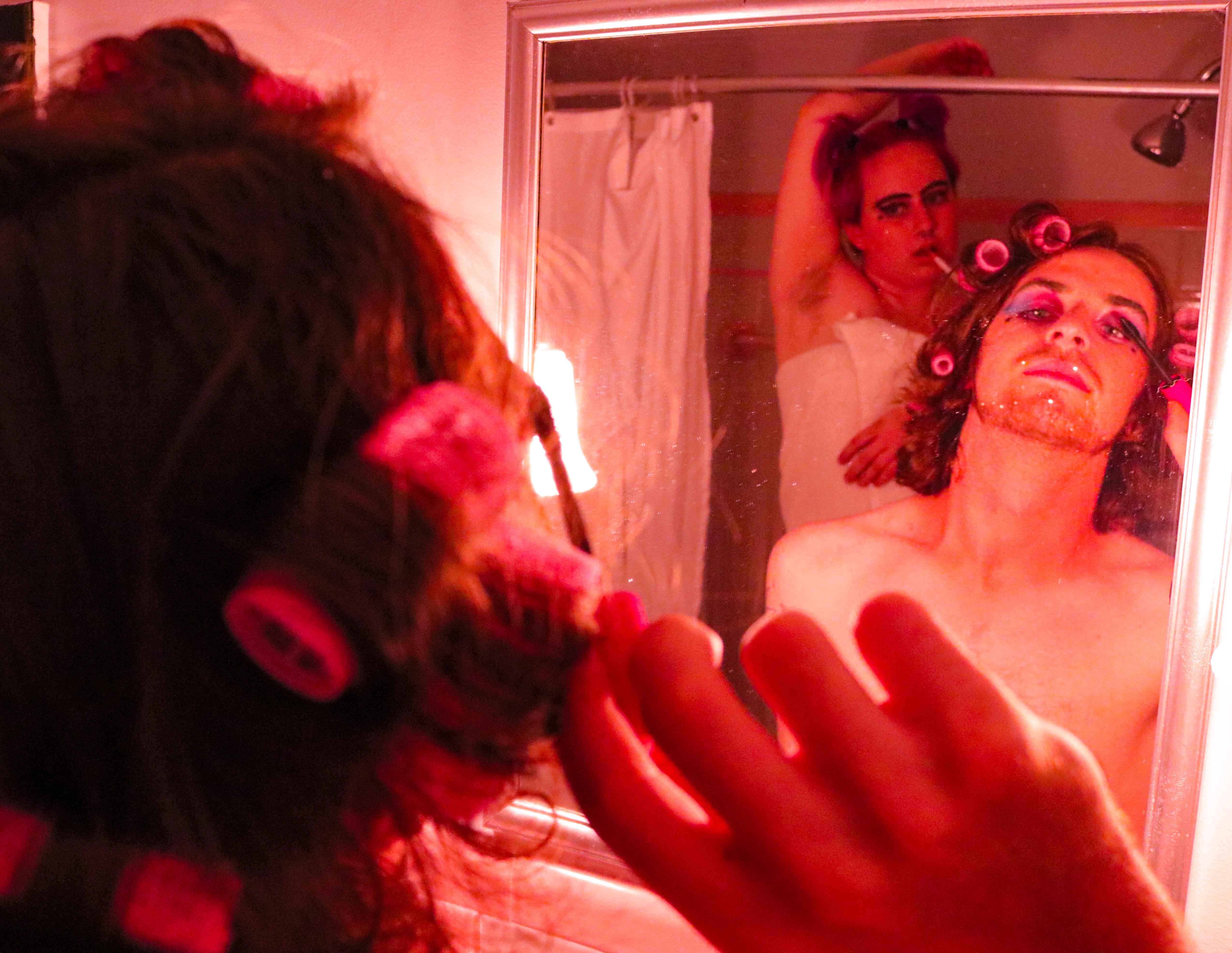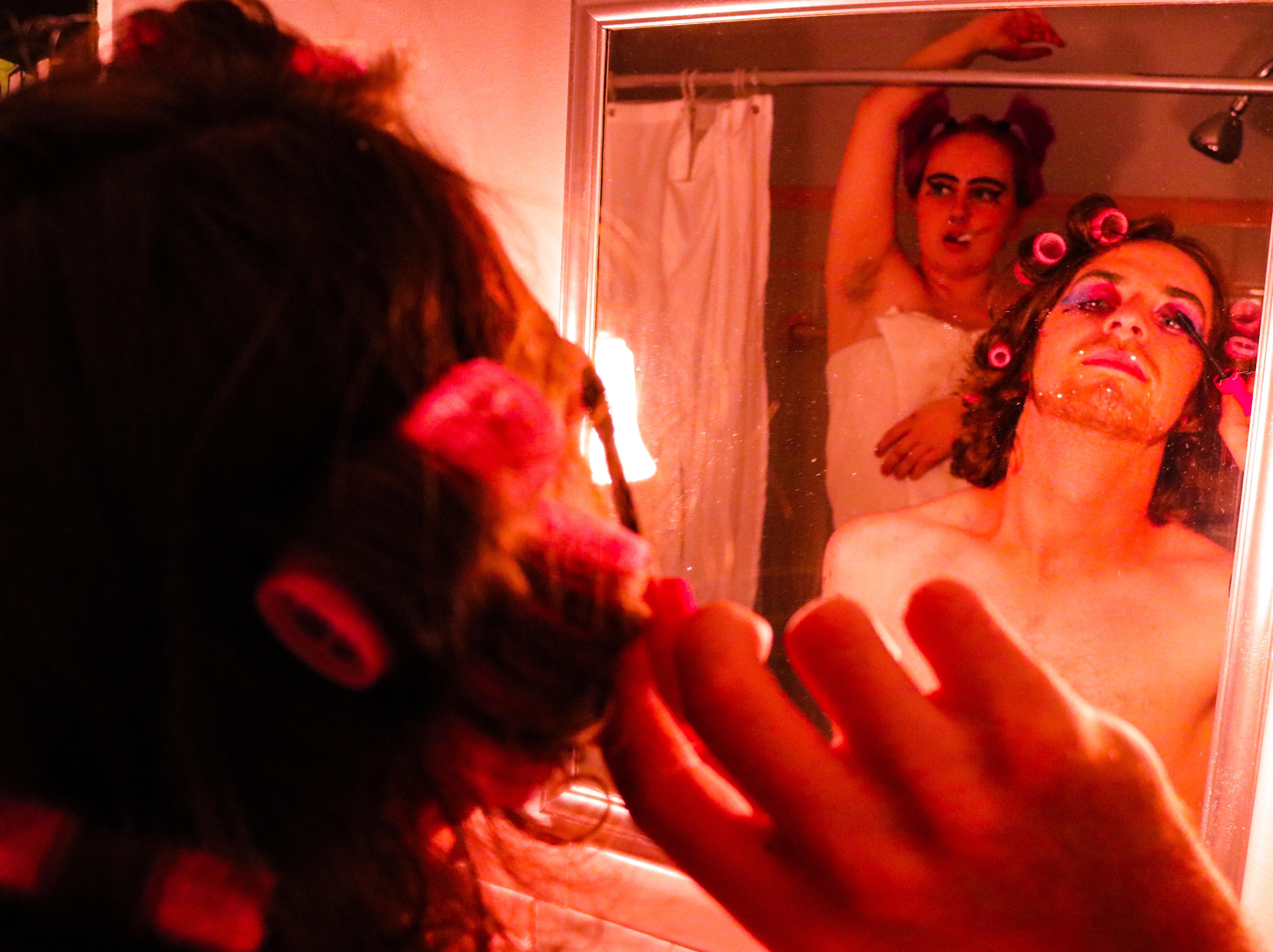Mascara
by Tess Lyons, Staff Photographer
In Mascara, MVMENT Staff Photographer Tess Lyons explores the theme of breaking gender roles through four related pieces: Mascara, Break Time, On the Wall and Dinner Date.
Mascara

In this image the roles are reversed with the woman relaxing, having a cigarette, while the man is primping himself, taking the most time and. Constantly in society, women are portrayed as the high maintenance ones who take the longest to get ready, while men just sit back and wait.
Break Time

Showing multidimensional women was the goal for this piece. When smoking first became popular, in was advertised as being masculine and a manly activity to participate in. This image shows a female breaking the gender expectation that men are the only ones to enjoy a cigarette break. The lighting in the image has a burnt yellow/orange vibe to it as cigarettes burn your lungs. The lighting and grainy feel also brings that vintage aspect to the photo, making it seem like it was taken in the same time period that women were not expected to smoke.
On the Wall

In On the Wall, the dynamic is switched between the woman and the man. Women are stereotypically thought to be more self conscious about their appearance and their flaws. On the Wall has the man holding the mirror in an attempt to gain better control in his journey to feel comfortable with his appearance. There already is a mirror hanging, so the fact that he chose to hold one sheds even more light on the common thought that women care deeply about their appearance.
Dinner Date

Dinner Date has its name because both the subjects are preparing for an evening out. I incorporated over the top makeup on the man and hair curlers because woman typically are thought and expected to go all out with their looks on special occasions. The woman is taking her time smoking a cigarette with a look of boredom on her face. Men majority of the time are portrayed as taking less time to get ready, even though this is not always the case. This series is about stereotypes and addressing them, which in turn just points out how unnecessary and sometimes silly they are.
